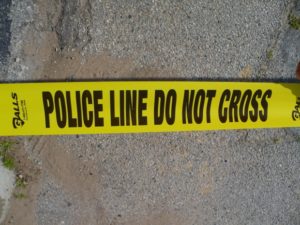When a car hits a pedestrian, there is often significant personal injury or death. Due to the fact that a car weights over 2,000 pounds and is moving, and a pedestrian has almost no protection, the pedestrian would be very fortunate to only suffer minor injuries, and that is not usually the case.
 For this reason, car accident lawsuits often involve substantial damages. Damages, which is the legal term for the monetary loss suffered in a Boston car accident, often include money for pain and suffering, lost wages, past medical bills, future medical expenses, rehabilitation expenses, and other types of special damages. As our Boston pedestrian accident lawyers can explain, in the event of a fatal car accident, there will also be a claim for funeral expenses and likely a more significant claim for lost wages, as the decedent will never be able to work and earn money for his or her family again. A case that involves a fatality will also be filed under a theory of wrongful death.
For this reason, car accident lawsuits often involve substantial damages. Damages, which is the legal term for the monetary loss suffered in a Boston car accident, often include money for pain and suffering, lost wages, past medical bills, future medical expenses, rehabilitation expenses, and other types of special damages. As our Boston pedestrian accident lawyers can explain, in the event of a fatal car accident, there will also be a claim for funeral expenses and likely a more significant claim for lost wages, as the decedent will never be able to work and earn money for his or her family again. A case that involves a fatality will also be filed under a theory of wrongful death.
All of these damages, as discussed above, are examples of compensatory damages. For a more detailed explanation of compensatory damages in civil cases, including car accidents that result in death, see Chapter 229 of the Massachusetts General Laws (MGL) or one of our previous blog posts on this issue.
The goal of compensatory damages is to compensate plaintiffs for the losses suffered as a result of defendant’s breaching his or her duty of due care in a way that caused actual and proximate injuries to plaintiff. The goal, as the name implies, is not to punish defendant or entitle plaintiff to a windfall, but to put plaintiff in the same position he or she was in prior to accident. While we know that money will fix pain and suffering, it can help make you whole as the law intends and make your life a lot easier moving forward.
This is the goal of compensatory damages, and that is why they are the standard measure of damages in both tort and contract law. This is not to say that other types of damages, such as punitive, are not ever appropriate, but they require a showing of more than ordinary negligence. Generally speaking, there must be evidence of a willful and wanton disregard for safety of plaintiff.
One case involving a pedestrian accident that resulted in a fatality was described in a recent news article from Mass Live. In this case, authorities have said a man was walking home around 9 p.m. when he was hit by a vehicle on Tremont Street in downtown Boston near Back Bay and the South End. The driver who allegedly hit pedestrian stayed on the scene and was cooperative with police.
The victim of this Boston pedestrian-car accident was treated by EMTs on the scene of the crash and rushed to a Boston level-one trauma center for further evaluation and treatment. Unfortunately, his injuries provided too severe, and there was nothing his doctors could do to revive him. He was pronounced dead soon after arriving at the hospital.
If you are injured in an accident in Massachusetts, call Jeffrey Glassman Injury Lawyers for a free and confidential appointment: (617) 777-7777.
Additional Resources:
Pedestrian struck and killed in Boston car accident on Tremont Street, May 30, 2017, By Kristin Lafratta, Mass Live
More Blog Entries:
Why Do Boston Drivers Hit and Run?, July 3, 2014, Boston Car Accident Lawyer Blog
 Boston Car Accident Lawyer Blog
Boston Car Accident Lawyer Blog

